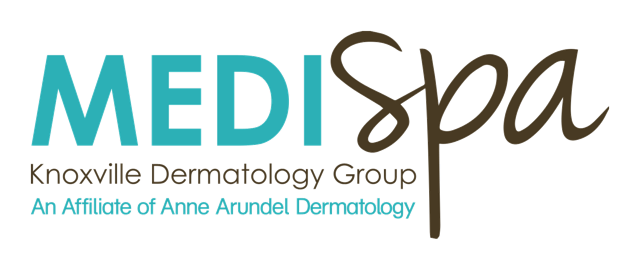These treatments, also known as chemical peels, range from superficial to medium depth. Our aestheticians will assess your skin, consider your skin type and sensitivity, customize your treatment, then proceed to treat your specific needs, such as fine lines, hyperpigmentation, dehydration, rosacea, uneven skin texture, and the need for skin detoxification and deep cleansing. We offer a variety of chemical treatments through medical-grade skincare lines, such as SkinMedica®, Melanage® Mini Peel, Glytone®, Obagi® Medical, and our MediSpa private label.
Chemical Treatments Can Improve:
- Rough, dry skin
- Acne and blemishes
- Uneven skin tone, brown spots, and hyperpigmentation
- Sun damage
- Fine lines
- Small scars, including acne scars
- Aging skin
- Enlarged pores
- Rosacea
Preparing for a Chemical Treatment
We ask that you do not use any retinoids or aggressive skincare products for one week (7 days) prior to your scheduled chemical treatment appointment in order to prevent any problems.
What to Expect During a Chemical Treatment
Most of our chemical treatments require an hour appointment. The patient may feel a mild tingling sensation during the chemical treatment.
Chemical Treatment Recovery and Results
The downtime after a chemical treatment varies from none at all to as much as several days of peeling or flaking. Yet, you can wear makeup during the recovery period, beginning the day after your treatment. You may also experience some redness, tenderness, and inflammation. In some cases, the skin can continue to flake for a period of two weeks after the chemical treatment.
Depending upon the type of chemical treatment the aesthetician recommends for your skin, she will suggest after care products, such as special cleansers or moisturizers. With most chemical treatments, you will be asked to hold off on any type of skincare regimen until the day after your treatment day. The aesthetician will also ask that you diligently wear sunscreen for a period of time after the chemical treatment, as your skin will be more vulnerable to the sun’s rays.
Are Chemical Treatments Safe?
Chemical treatments are very safe, but they must be administered by skilled and experienced professionals. Our medically trained staff at MediSpa are among Tennessee’s most experienced and respected in the field of dermatology and cosmetics.



